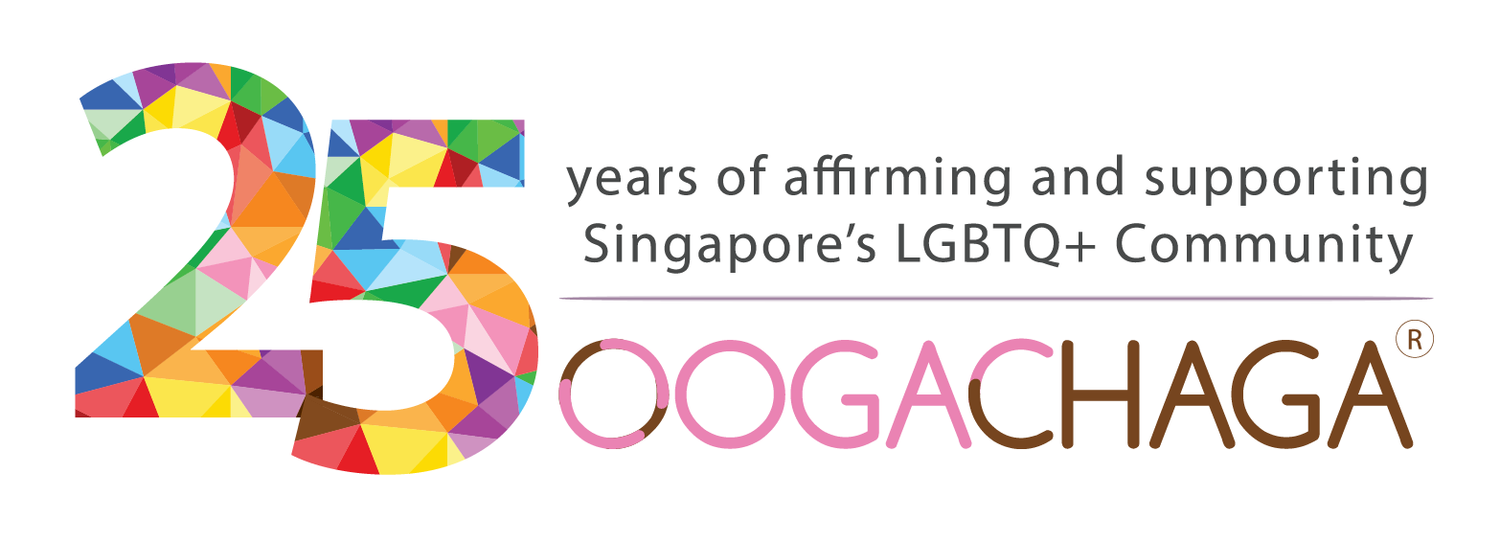Specially-commissioned comic strips raising awareness of LGBTQ+ human rights as part of Singapore’s Universal Periodic Review 2021
Ahead of Singapore’s Universal Periodic Review (UPR), Oogachaga and Pink Dot SG have commissioned Singaporean artists to promote awareness and discussion of key issues impacting Singapore’s LGBTQ community. Their artwork highlighted issues from Oogachaga and Pink Dot SG’s joint stakeholder report, which can be viewed here.
The artists are Bel Mervyn, Joy Ho, Nicolette Lee, Andre D’Rozario and Heckin’ Unicorn, and their artwork covered the following issues:
The UPR is a United Nations (UN) Human Rights Council mechanism aimed at improving the human rights situation on the ground of each of the 193 UN Member States. Under this unique mechanism, each Member State undergoes a review of its human rights record every 5 years.
Non-governmental organisations can participate in the process by submitting stakeholder reports to the UN ahead of the UPR. This is not the first time Oogachaga and Pink Dot SG participated in the UPR. In June 2015, on invitation from Singapore’s Ministry of Foreign Affairs, Oogachaga and Pink Dot SG jointly submitted a stakeholder report on LGBTQ issues to the Human Rights Council for Singapore’s 2nd UPR cycle. Singapore’s 3rd UPR took place on 12 May 2021 at the United Nations in Geneva.
Illustrated by Bel Mervyn
1.LGBTQ-INCLUSIVE SEXUALITY EDUCATION
Context:
The current Ministry of Education (MOE) sexuality education curriculum is inadequate in empowering young LGBTQ+ persons to make appropriate and healthy choices. It does not address LGBTQ+ issues from an evidence-based perspective.
One of its guiding principles is to ‘encourage heterosexual married couples to have healthy relationships with each other’, which is inappropriate and alienating for LGBTQ+ youth.
Recommendation:
We recommend implementing an evidence-based sexuality education curriculum that is inclusive of LGBTQ+ diversity, while ensuring consistency and secularity of content.
Illustrated by Joy Ho
2. ACCESS TO LGBTQ-AFFIRMING SOCIAL SERVICES
Context:
Singapore has over 450 non-profit social service agencies (SSAs) providing services to meet the psycho-social, mental health and community health needs of the population.
Other organisations that openly provide services for the LGBTQ+ community (such as Oogachaga, The T Project, Brave Spaces and Project X) are not formally recognised by the Government as SSAs.
Recommendation:
We recommend allocating government resources to develop comprehensive LGBTQ+ specific programmes in social service, healthcare and mental health settings.
Illustrated by Joy Ho
3. RESTRICTIONS ON FREEDOM OF ASSEMBLY FOR LGBTQ+ COMMUNITY
Context:
Events in support of the local LGBTQ+ community and our rights are restricted to being held in Hong Lim Park — the only location in the country where Singaporeans can exercise our right to freedom of assembly.
Recommendation:
We recommend revising the policy of refusing permits to LGBTQ+ assemblies and mass events outside of Hong Li Park, on the basis that it is contrary to the national interest or public order.
Illustrated by Nicolette Lee
Illustrated by Andre D’Rozario
4. LEGAL GENDER RECOGNITION FOR TRANSGENDER PERSONS
Context:
While existing legislation allows for ‘Name’ and ‘Sex’ on the NRIC to be changed, the current policy requires the NRIC-holder who applies to change their ‘sex’ to produce a doctor’s letter indicating that the NRIC-holder has completed reassignment surgery from one gender to another.
Transgender Singaporeans who do not have genital reconstruction surgeries are not able to obtain a doctor’s letter to ‘prove’ their transition. They are therefore not able to change their gender marker on their national registration documents.
Recommendation:
We recommend implementing a non-surgical route for gender recognition, which requires psychiatric diagnosis of gender dysphoria, coupled with a minimum period of time on hormone replacement therapy and evidence of social transition in alignment with their gender identity.
Illustrated by Nicolette Lee
Illustrated by Andre D’Rozario
5. LGBTQ+ SCHOOL BULLYING
Context:
Former and current LGBTQ+ students report that homophobic and transphobic bullying by students is still happening in schools.
Recommendation:
We recommend the development of a National Action Plan to specifically address LGBTQ+ bullying and mental health in schools, in collaboration with LGBTQ+ community and healthcare organisations, and to include clear reporting processes for victims.
Illustrated by Heckin’ Unicorn
6. LGBTQ+ MENTAL HEALTH & CONVERSION THERAPY
Context:
The United Nations defines ‘conversion therapy’ as interventions based on the belief that a person’s sexual orientation and gender identity (LGBTQ+ identities in particular) can and should be changed and suppressed.
It has been proven to have a severe, lasting, and harmful effect on one’s physical and mental health.
‘Conversion therapy’ continues to be practised in Singapore, as LGBTQ+ youth and adults report being subject to these practices after being referred by religious leaders and professionals in social service, healthcare and education.
Recommendation:
We recommend introducing legislation to protect LGBTQ+ minors and vulnerable adults from conversion practices.
Illustrated by Bel Mervyn
7. LGBTQ+ MEDIA CENSORSHIP
Context:
In Singapore, television programmes, films, radio, and advertising are regulated by IMDA through its Content Codes.
Information about and positive portrayal of LGBTQ+ issues, persons, and relationships in mainstream media continue to be restricted through these guidelines.
Recommendation:
We recommend removing all existing media guidelines that discriminate against positive portrayal of LGBTQ+ issues, persons and relationships.
JOINT STAKEHOLDER SUBMISSION BY OOGACHAGA AND PINK DOT SG
You can read the full submission by following this link, and visit the Pink Dot SG website for the UPR explainer




































